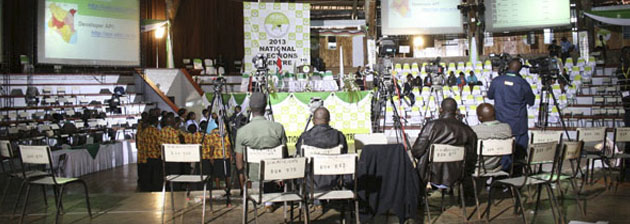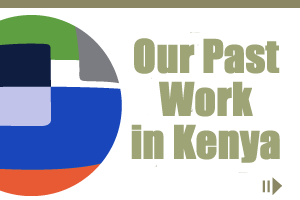By Ida Jooste, Country Director, Internews in Kenya.
“If there was a time we needed a partner to moderate the rising temperatures, this was it, and the local media came through in a special way. They handled issues with modesty and professionalism”.
These were the words of IEBC chairperson Isack Hassan, in his preamble to the announcement of the final results of Kenya’s 2013 elections.
“The media, especially local media, deserves special attention”, said Hassan, “for their fair coverage of the election and for conducting themselves in a most exemplary way, in accordance with the Code of Conduct they had signed as media on the coverage of elections”
Internews, in partnership with the Media Council of Kenya and the Mac Arthur Foundation, drafted and distributed the Code to media houses in Kenya.
In a statement, on behalf of the African Union Panel of Eminent African Personalities, on the announcement of the final results of the Kenyan presidential election, Mr. Kofi Annan wrote:
“Let me also highlight the positive role that has been played by the media, in educating the public, promoting peace and exercising good judgment in their elections coverage”. Annan praised the peaceful course of the Kenyan elections, and - in a hint that “the election story” was not yet over, he said he was encouraged by the decision of Mr. Raila Odinga and his ODM party to resolve its concerns with the electoral process and results through the judicial process. “In doing so, it is acting in accordance with the Constitution and the rule of law”, said Annan.
Annan played in a pivotal role in 2008 by assisting Kenyan leaders with negotiating the National Accord, which signaled the start of the reform and reconciliation process, after the 2007/8 disputed polls led to widespread violence.
In the hours and days that followed voting day, Kenyan citizens eagerly followed the media for updates on election results. Four and a half days later than originally promised, the final results were formally announced: Uhuru Kenyatta is Kenya’s elected President. All day and all night long, the media provided even-handed and comprehensive coverage sometimes having to be inventive to fill the extra TV and radio air time created by the long wait.
In that time, citizens made contributions on blogs and on Twitter with some tweets going viral and being relayed on mainstream media, as the nation held its breath to hear the final tally.
In his closing speech, Hassan referred to the popular Tweet making the rounds: “Tunaweswait”- urging people to wait patiently through the many delays in the process. This was after presidential candidate’s “Tunawesmek” - Sheng language for Obama’s “Yes we Can”.
Hassan said on the 4th of March, Kenyans had a “date with destiny, a rendezvous with history”. He described the elections as complex, that expectations were high but that Kenyans had put their best foot forward.
“This includes the media, who has now erased the bad reputation it earned in the 2007/8 post election violence”, said Tole Nyatta, lead of the Internews Conflict Sensitive Journalism Program. ”Our hard work has paid off. The media has exorcised the demons of the previous elections”, he said. Nyatta was instrumental in peacebuilding efforts with the media in 2007/8. Since 2008, he has been guiding his peers in conflict sensitive storytelling through Internews programs designed to secure credible coverage for these just concluded elections.
See also story on international media coverage
What do YOU think of Kenyan media coverage?




